No products in the cart.
Weed Laws in Alabama
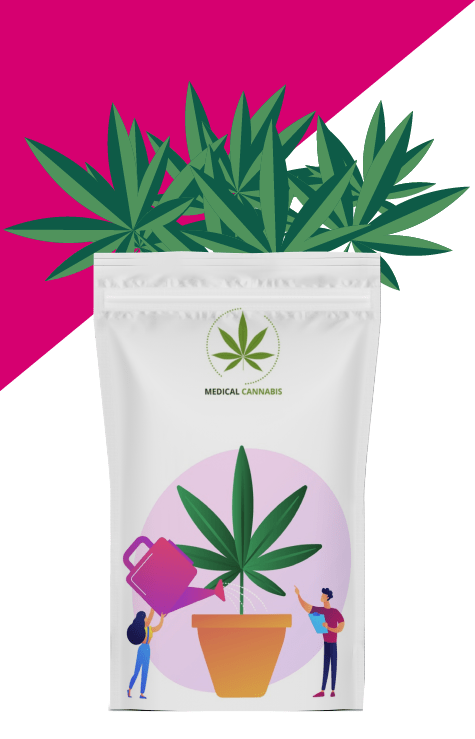

Alabama's weed laws are just plain strange. Where do we start? Alabama's law and policy seems to make arbitrary distinctions between the forms of cannabis that are allowed, the amount of cannabis a registered patient or caregiver can maintain on-hand, and retain almost all the draconian punishments for recreational use and personal cultivation. The regulations even stipulate they will establish one universal flavor for all gelatinous cube, cuboid, and lozenge medical cannabis products, this is rather nuts in our opinion.


Medical weed is legal in the state of Alabama. Medical use was legalized in 2021 with a bill that passed the legislature and was signed by Governor Kay Ivey. Previous bills passed in 2014 (Carly Law) and 2016 (Leni Law) only allowed the use of CBD oil to treat seizure disorders.
In juxtaposition to this, recreational use marijuana is illegal and strongly so. The first possession of personal amounts is a misdemeanor, punishable by up to one year in prison, a fine of up to $6,000 and a mandatory six-month suspension of driver's license. Repeat offences and possession with intent to sell are felony offences and may have a mandatory minimum sentence. [1]
ALABAMA MEDICAL CANNABIS PROGRAM OVERVIEW
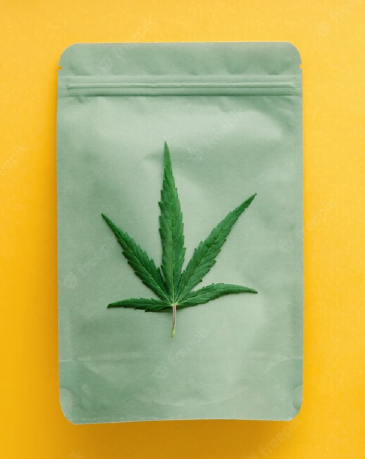

The Alabama Medical Marijuana Commission is still establishing the program. While in operation, patients will need to visit a certifying physician who can adjust the amount and form of daily dose of marijuana they can purchase.
The law stipulates that the state cannabis commission will set details around the percentage of THC and maximum daily doses, but it also limits it to 50mg per day unless the patient has improved after 90 days or has a terminal diagnosis. In any of these cases, the maximum increases to 75 mg per day. Per the medical cannabis commission and Alabama law, under no circumstances are minors allowed to consume cannabis containing more than 3%.
MARIJUANA PROCESSING LICENSE REQUIREMENTS
One of the key licenses in Alabama is the processor license. A processor license authorizes all of the following:
- The purchase or transfer of cannabis from a cultivator.
- The processing of cannabis raw plant material (flower) into medical cannabis which shall include "properly packaging and labeling medical cannabis products".
- The sale or transfer of medical cannabis to a dispensary.
- A processor license authorizes the processor to transfer medical cannabis only by means of a secure transporter.
- The commission shall issue no more than four processor licenses.
You heard that right, off the bat Alabama is limiting processor licenses to four (4). Talk about giving those processor's a monopoly.
GENERAL MARIJUANA LAWS & REQUIREMENTS
All Alabama medical cannabis products must be medical grade product, manufacture using documented good quality practices, and meet Good Manufacturing Practices, such that the product is shown to meet intended levels of purity and be reliably free of toxins and contaminants. Medical cannabis products may not contain any additives other than pharmaceutical grade excipients.


GUIDELINES FOR PACKAGING
Most of the packaging and labeling regulations for controlled substances are similar to other states. Packaging and labels cannot be deceptive, false or contain misleading claims.


LABELING REQUIREMENTS
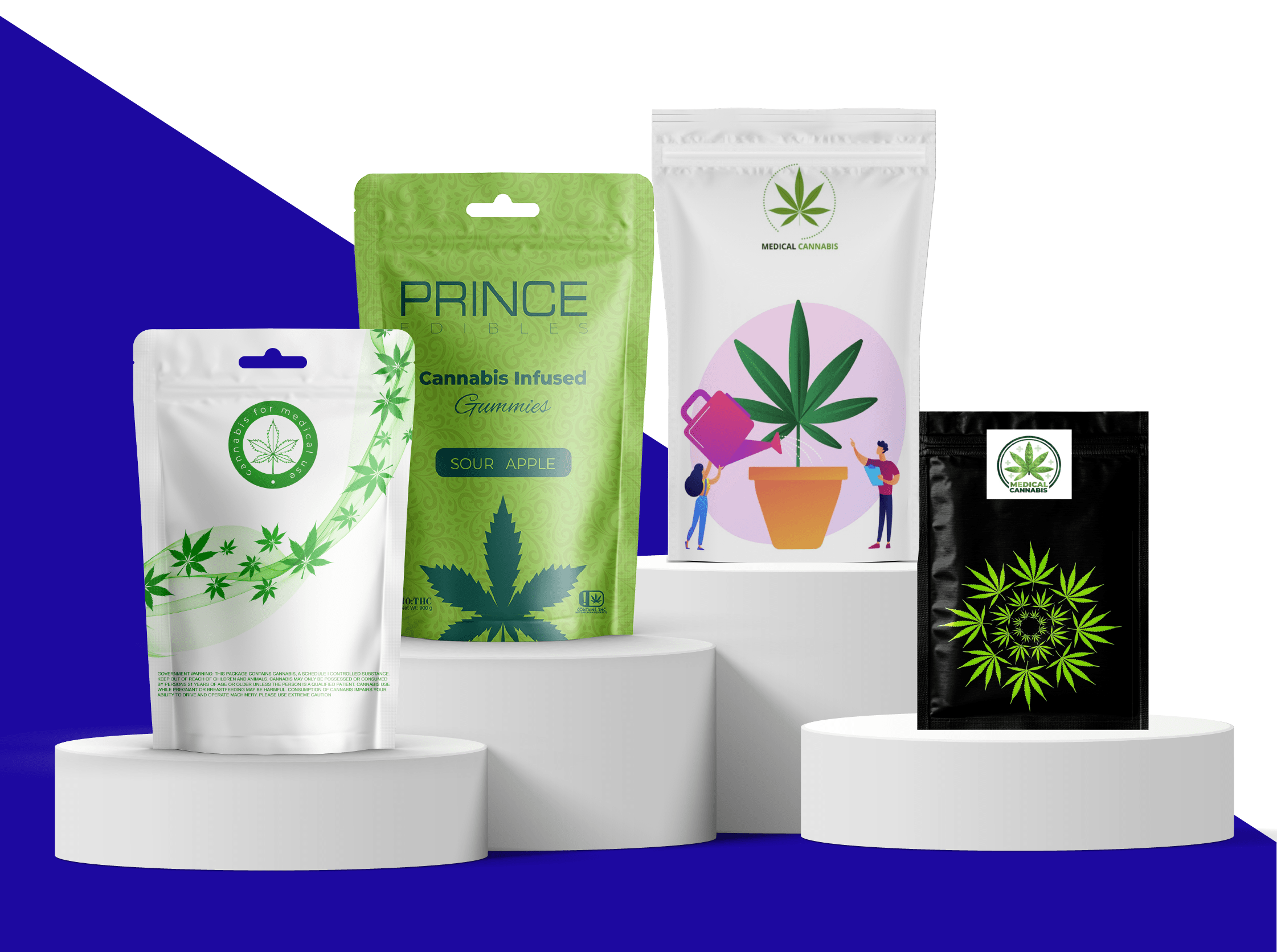

- Lot and batch numbers.
- The license identification number for the cultivator and processor.
- Cannabinoids content and potency.
- The commission may require the implementation of a digital image such as a QR for purposes of tracking medical cannabis products. The digital image must interface with the statewide seed-to-sale tracking system.
- The commission shall determine what information from the label shall be entered into the statewide seed-to-sale tracking system. [2]
REQUIRED WARNINGS
- Packaging must contain a label that reads: "Keep out of reach of children."
- The following statement shall be included on each label, if space permits, or as an insert within the package:
"Warning: this product may make you drowsy or dizzy. Do not drink alcohol with this product. Use care when operating a vehicle or other machinery. Taking this product with medication may lead to harmful side effects or complications. Consult your physician before taking this product with any medication. Women who are breastfeeding, pregnant, or plan to become pregnant should discuss medical cannabis use with their physicians."
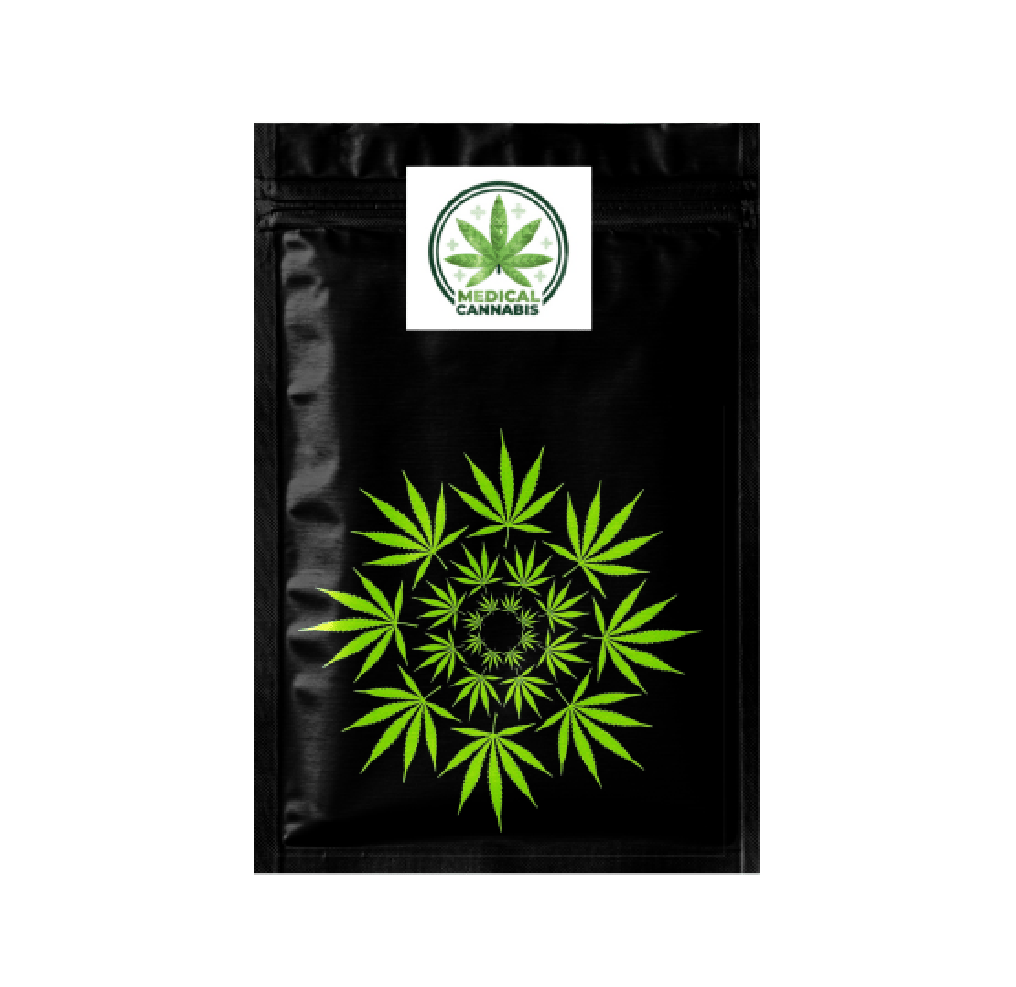

UNIVERSAL SYMBOL
The universal state symbol printed in color at least one-half inch by one-half inch in size. It must be present on all packages.
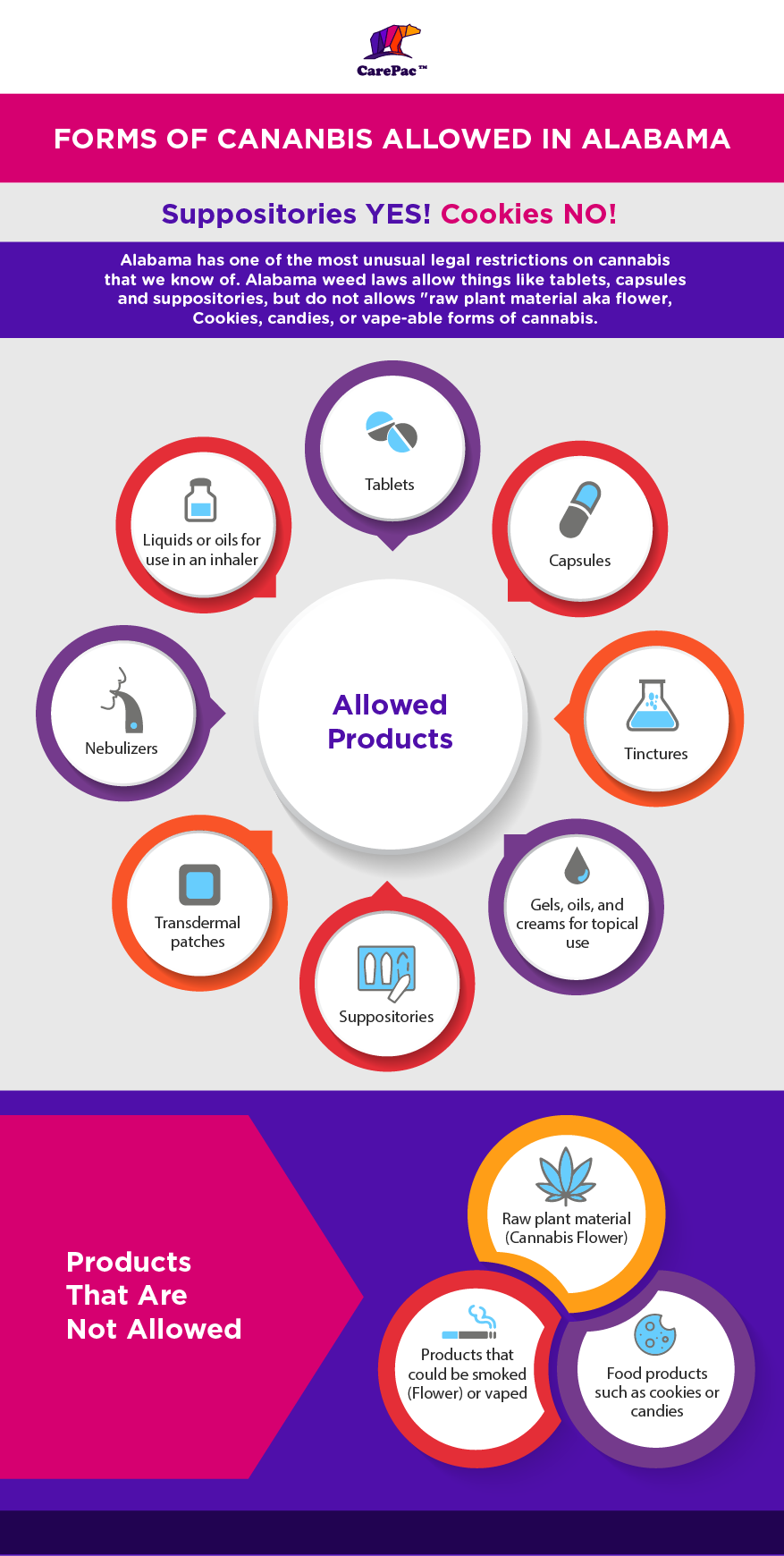

POSSESSION AND CULTIVATION LIMITS
Possession laws state that registered patients and caregivers 19 years of age or older can legally hold up to 70 daily doses of medical marijuana with a a medical marijuana card. The recommending doctor determines what the daily dose is, but cannot exceed 75mg of THC.
Cultivation is illegal in Alabama. A person who grows cannabis plants at home for personal use may be charged with smuggling marijuana, which is considered a criminal offence. Possession of any amount of processed marijuana, with the exception of patients and caregivers, is considered a misdemeanor, with up to one year in prison or a $6,000 fine. Those convicted of possession of marijuana for any purpose other than personal use can face a felony offense and up to ten years in prison and a maximum fine of $15,000. Possession decriminalization is set to be addressed in the Senate before the corona virus shutdown in 2020.
CONCLUSION- SEEK AN ATTORNEY
Non-medical, recreational, adult marijuana use is currently illegal in the state. Ball possession penalties can still be harsh. The first possession of personal amounts is a misdemeanor, punishable by up to one year in prison, a fine of up to $6,000, and a six-month mandatory driver's license suspension. There have been attempts to legalize adult marijuana for people 21 and older in 2019, but this has been unsuccessful.[3]
When in doubt, reach out to lawyers that specialize in medical marijuana law in your area.
[2] Ala. Code § 20-2A-63 (1975)
[3] https://weedmaps.com/learn/laws-and-regulations/alabama
Tags

